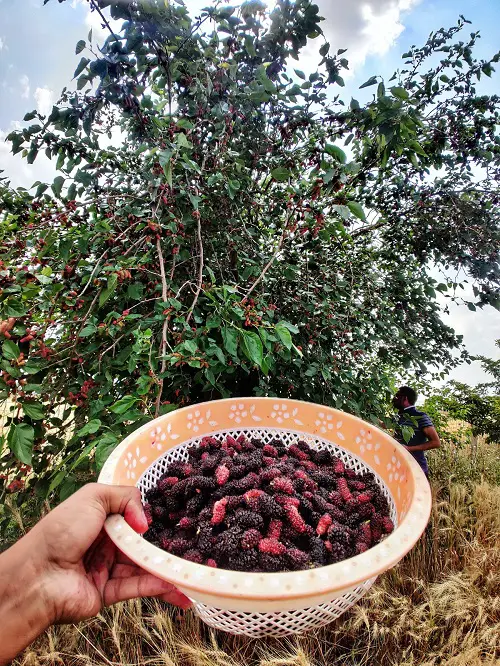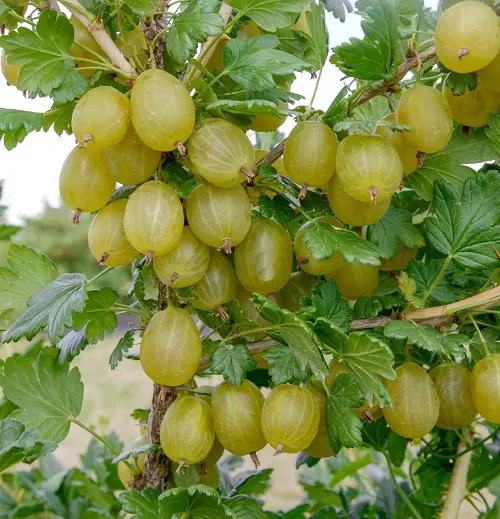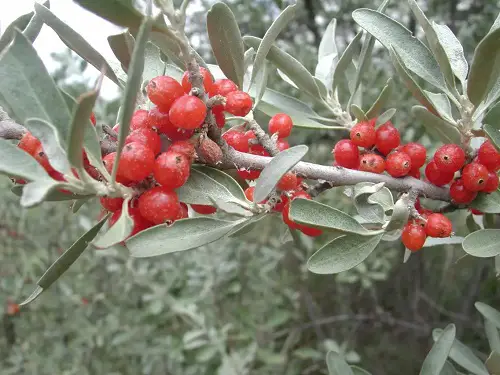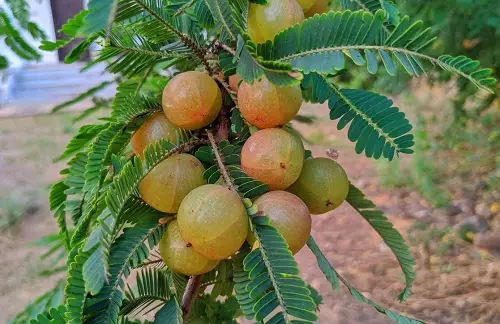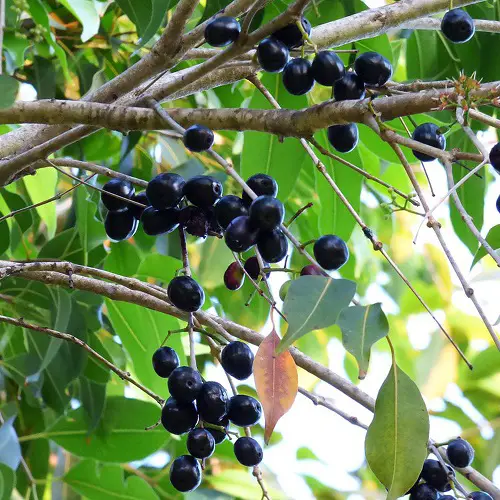Do you know about the Types of Wild Berries around the world? This article showcases the best ones that will surely surprise you!
You may find small, sweet fruits in abundance in the wild that can be eaten fresh or used in a variety of dishes. However, with the right knowledge and some practice, you can also experience the Best Types of Wild Berries that are particularly delicious and nutritious!
Check out Trees with Red Berries
Best Types of Wild Berries
1. Blueberries
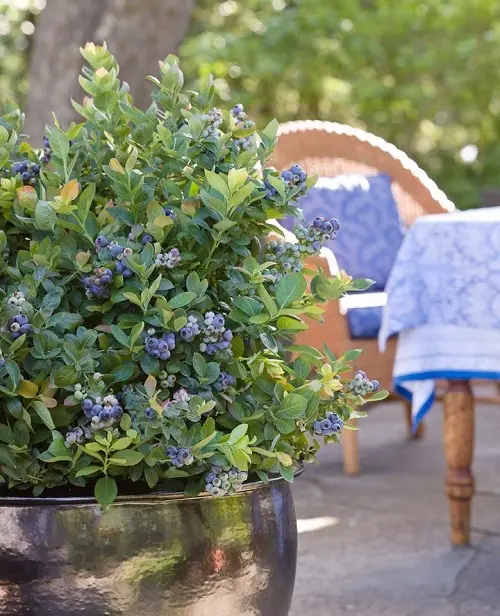
Botanical Name: Vaccinium sect. Cyanococcus
Blueberries are small, dark blue berries that are rich in antioxidants and high in fiber. It grows best in full sunlight.
2. Blackberries

Botanical Name: Rubus subg. Rubus
Blackberries are high in antioxidants; these small, juicy berries are rich in vitamin C and vitamin K.
3. Raspberries
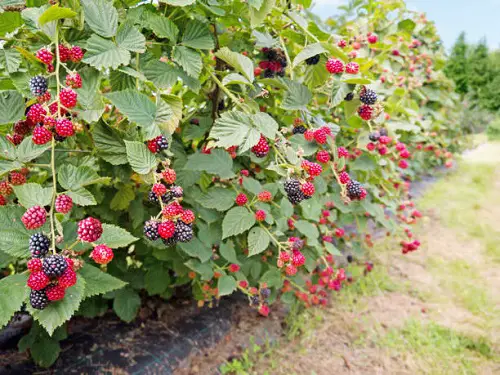
Botanical Name: Rubus idaeus
Raspberries are a sweet and tart type of wild berry. You can use them in a variety of recipes, such as jams, jellies, and sauces.
4. Huckleberries

Botanical Name: Vaccinium membranaceum
Huckleberries are a lesser-known type of wildberry that are native to North America. These small, blue-black berries are high in antioxidants and are often eaten fresh.
5. Chokeberries
Botanical Name: Aronia
Chokeberries are also native to North America and come in two varieties: red chokeberry and black chokeberry. It protects against chronic diseases, too.
6. Thimbleberries
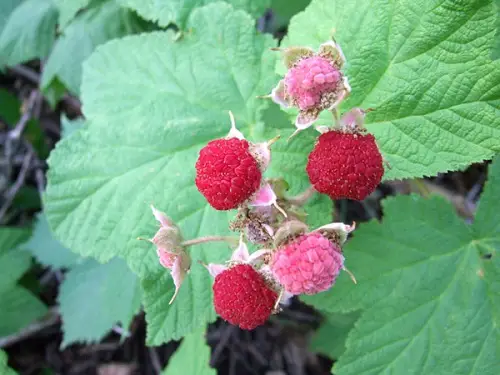
Botanical Name: Rubus parviflorus
Thimbleberries are small, round berries that are red or pink in color. They are soft and delicate, with a texture that is similar to that of a raspberry.
7. Salmonberries
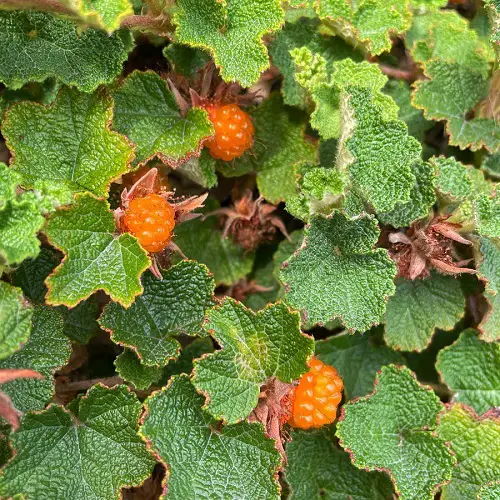
Botanical Name: Rubus spectabilis
Salmonberries are popular for their unique flavor, which is a combination of sweet and tart notes with a slightly floral aroma.
8. Chokecherries
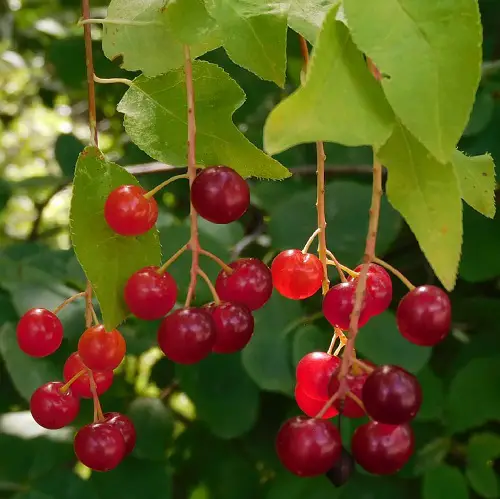
Botanical Name: Prunus virginiana
Chokecherries grow on trees in clusters. They are a great source of vitamins, minerals, potassium, and calcium.
9. Mulberries
Botanical Name: Morus alba
Mulberries are native to Asia and Europe. These berries can be eaten fresh, dried, or cooked.
10. Cloudberries
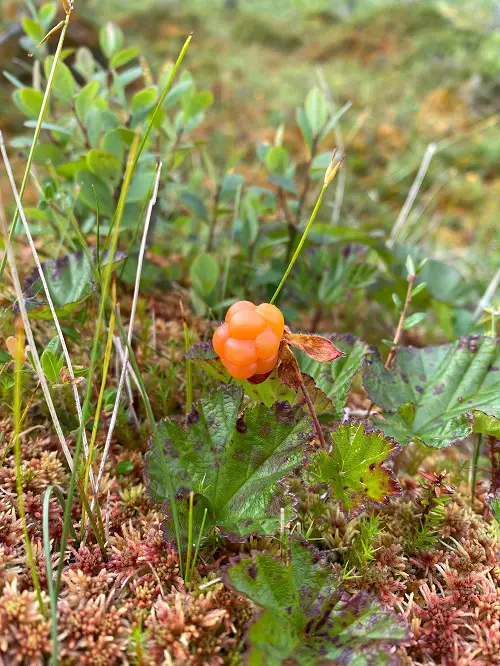
Botanical Name: Rubus chamaemorus
Cloudberries, also known as bakeapples, are a type of berry that grows in cold climates. These small, orange-colored berries are highly prized for their unique flavor.
Discover Shrubs and Bushes with Red Berries
11. Saskatoon Berries
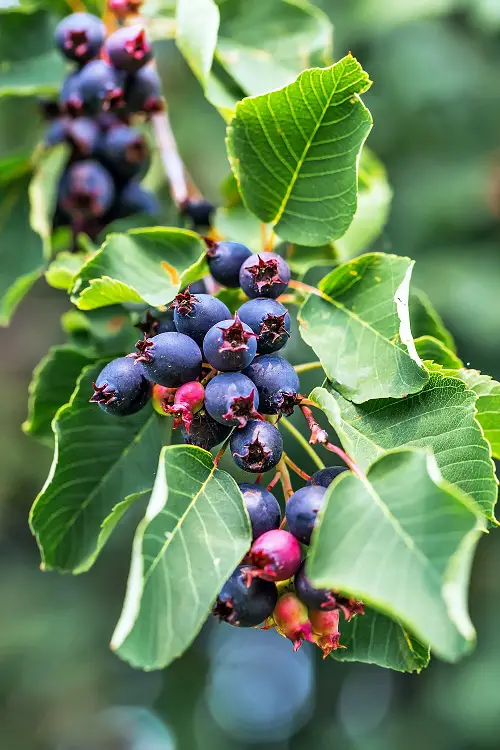
Botanical Name: Amelanchier alnifolia
Saskatoon berries are native North American fruits that have been a staple of Indigenous diets for centuries. These are packed with flavor and nutrition!
12. Elderberries
Botanical Name: Sambucus nigra
Elderberries grow on small trees or large shrubs that can reach up to 6 meters in height and typically ripen in early summer. They are native to Europe, Africa, and parts of Asia.
13. Gooseberries
Botanical Name: Ribes uva-crispa
These small, round berries are similar in appearance to grapes and are typically green, red, or yellow in color. Their tartness pairs well with sweeter ingredients like sugar and cream.
14. Buffaloberries
Botanical Name: Shepherdia
Buffaloberries are a type of wild berry that grows in many regions across North America. They are also used to make pemmican, a high-energy food.
15. Bearberries
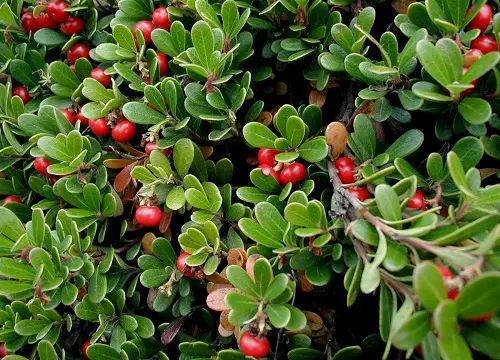
Botanical Name: Arctostaphylos uva-ursi
Bearberries are used in a variety of cosmetic and skincare products. These berries grow best in well-draining soil and full sun.
16. Muscadine
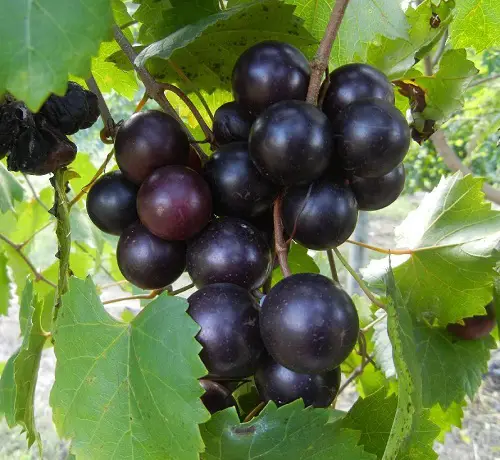
Botanical Name: Vitis rotundifolia
Muscadines are a type of grape that is native to the southeastern United States. These large, thick-skinned grapes have a distinctive sweet and musky flavor.
17. Indian Gooseberry
Botanical Name: Phyllanthus emblica
These Types of Wild Berries are native to India, with a sour-tart taste and a hint of sweetness. It is packed with antioxidants, vitamins, and minerals.
18. Karonda
Botanical Name: Carissa carandas
The fruit is small, round, and bright red in color with a tart flavor. Karonda is most commonly eaten fresh, but it can also be used to make jams, jellies, and chutneys.
19. Java Plum
Botanical Name: Syzygium cumini
The fruit has a sweet and sour taste and is eaten fresh or used to make jams, jellies, and preserves. These berries have a range of medicinal uses.



